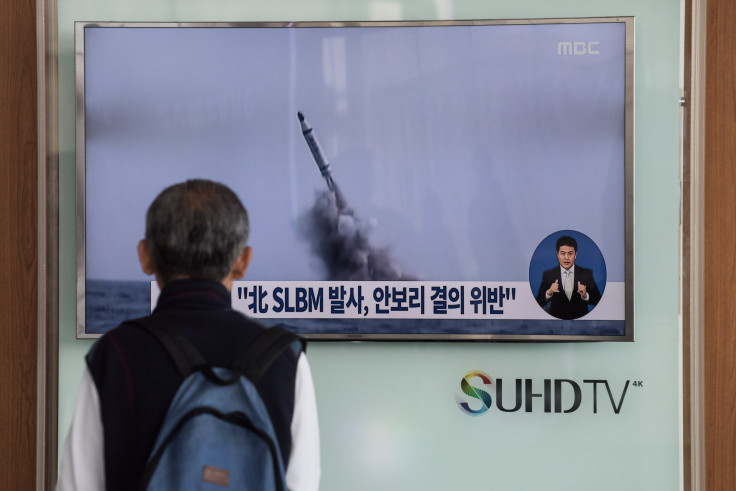Why Do North Korea’s Musudan Missile Tests Fail? Kim Jong Un’s Country Had 7 Failures This Year

North Korea test-fired a missile Thursday, which failed after launch, according to the U.S. and South Korean militaries. This appeared to be second failed test within a week of the isolated nation launching another missile.
An intermediate-range Musudan missile was fired from the western city of Kusong on Thursday, drawing condemnation from the U.S., South Korea and Japan. Musudan had a theoretical range of between 1,500 and 2,500 miles and is the same type of missile that failed after launch Saturday.
North Korea has seen only one successful testing of Musudan in eight attempts so far this year. Why the repeated failure?
The speed at which the Kim Jong Un-led country has conducted missile tests means it is “learning nothing new,” defense analyst John Schilling wrote in a June analysis in 38 North. He further explained that North Koreans have been patient in terms of missiles, saying it takes months to understand the reason behind the failure and to fix it.
“North Korea’s rockets almost never work on the first try. The first Nodong apparently blew up on the pad … The Taepodong 1 and 2 rockets, the Unha, and now the KN-11 SLBM [submarine-launched ballistic missile], all failed on their first flight. To be fair, this is literally rocket science. It isn’t supposed to be easy, and even NASA failed on its first satellite launch attempt. Like NASA, North Korea has shown the ability to persevere, fix the problems, and eventually succeed,” Schilling wrote.
In June, Tal Inbar, the head of Fisher Institute for Air and Space Strategic Studies in Israel, wrote an elaborate NK News post explaining why the North has had several failures with regard to missile tests. He said that failed attempts were not only “bad PR, but genuine doubts about the credibility of the threat from this missile.”
“For an outsider, looks like an emotional decision [missile testing], not a rational one. … One can only try to imagine the immense pressure on the engineers and the military personnel responsible for the failed launches. The reputation of Kim is not that of a forgiving ruler,” Inbar wrote in the post.
Despite the series of failures, experts still believe that the Musudan could be operational in 2017.
“If they continue at this rate, the Musudan intermediate-range ballistic missile could enter operational service sometime next year–much sooner than had previously been expected,” Schilling wrote in Oct. 17 post on 38 North.
© Copyright IBTimes 2024. All rights reserved.






















